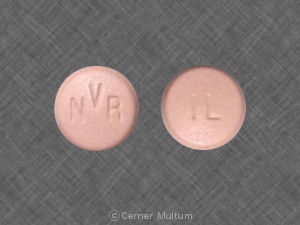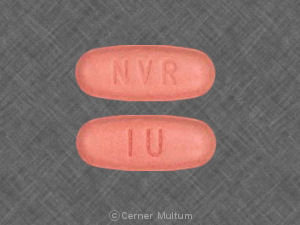What is the most important information I should know about aliskiren?
Do not use if you are pregnant. If you become pregnant, stop taking this medicine and tell your doctor right away.
If you have diabetes, do not use aliskiren together with certain heart or blood pressure medicines (such as Avalide, Benicar, Byvalson, Cozaar, Hyzaar, Diovan, Exforge, Lotrel, Monopril, Vasotec, Vasoretic, Zestoretic, and many others).
What is aliskiren?
Aliskiren is blood pressure medicine. It works by decreasing substances in the body that narrow blood vessels and raise blood pressure.
Aliskiren is used to treat high blood pressure (hypertension).
Aliskiren may also be used for purposes not listed in this medication guide.
What should I discuss with my healthcare provider before taking aliskiren?
You should not take aliskiren if you are allergic to it.
If you have diabetes, do not use aliskiren together with certain heart or blood pressure medicines, such as:
- azilsartan (Edarbi, Edarbyclor), candesartan (Atacand), eprosartan (Teveten), irbesartan (Avapro, Avalide), losartan (Cozaar, Hyzaar), olmesartan (Azar, Benicar), telmisartan (Micardis, Twynsta), or valsartan (Byvalson, Diovan, Entresto, Exforge, Tribenzor); or
- benazepril (Lotensin, Lotrel), captopril (Capoten, Capozide), enalapril (Vasotec, Vasoretic), fosinopril (Monopril), lisinopril (Prinivil, Zestoretic, Zestril), moexipril (Uniretic, Univasc), perindopril (Aceon, Prestalia), quinapril (Accupril, Accuretic), ramipril (Altace), or trandolapril (Mavik, Tarka).
You may also need to avoid taking these medicines with aliskiren if you have kidney disease.
Tell your doctor if you have ever had:
- an allergic reaction to any heart or blood pressure medicine;
- kidney disease;
- heart disease, a heart attack; or
- if you are on a low-salt diet.
Do not use if you are pregnant. If you become pregnant, stop taking this medicine and tell your doctor right away. Aliskiren can cause injury or death to the unborn baby if you take the medicine during your second or third trimester.
You should not breast-feed while using this medicine.
Aliskiren is not approved for use by anyone younger than 6 years old, and should never be given to a child under 2 years of age.
How should I take aliskiren?
Follow all directions on your prescription label and read all medication guides or instruction sheets. Your doctor may occasionally change your dose. Use the medicine exactly as directed.
You may take aliskiren with or without food, but take it the same way every time.
You may have very low blood pressure while taking this medicine. Call your doctor if you are sick with vomiting or diarrhea, or if you feel light-headed.
Your blood pressure will need to be checked often.
It may take up to 2 weeks before your blood pressure improves. Keep using this medicine as directed, even if you feel well. High blood pressure often has no symptoms. You may need to use blood pressure medicine for the rest of your life.
Store at room temperature away from moisture and heat.
Keep the tablets in their original container, along with the packet or canister of moisture-absorbing preservative.
What happens if I miss a dose?
Take the medicine as soon as you can, but skip the missed dose if it is almost time for your next dose. Do not take two doses at one time.
What happens if I overdose?
Seek emergency medical attention or call the Poison Help line at 1-800-222-1222.
What should I avoid while taking aliskiren?
Avoid taking this medicine with a high-fat meal, or it could be harder for your body to absorb aliskiren.
Do not use salt substitutes or potassium supplements while taking aliskiren, unless your doctor has told you to.
Get up slowly from a sitting or lying position, or you may feel dizzy.
What are the possible side effects of aliskiren?
Get emergency medical help if you have signs of an allergic reaction: hives, itching; vomiting, severe stomach pain; dizziness, chest tightness, difficult breathing; swelling of your face, lips, tongue, or throat.
If you have an allergic reaction to aliskiren you should not take it again.
Call your doctor at once if you have:
- a light-headed feeling, like you might pass out;
- little or no urination;
-
high potassium --nausea, weakness, tingly feeling, chest pain, irregular heartbeats, loss of movement; or
-
low levels of sodium in the body --headache, confusion, slurred speech, severe weakness, vomiting, loss of coordination, feeling unsteady.
Common side effects may include:
This is not a complete list of side effects and others may occur. Call your doctor for medical advice about side effects. You may report side effects to FDA at 1-800-FDA-1088.
What other drugs will affect aliskiren?
Tell your doctor about all your current medicines and any you start or stop using, especially:
- any other heart or blood pressure medicines;
- cyclosporine;
- itraconazole;
- a diuretic or "water pill"; or
-
NSAIDs (nonsteroidal anti-inflammatory drugs) --aspirin, ibuprofen (Advil, Motrin), naproxen (Aleve), celecoxib, diclofenac, indomethacin, meloxicam, and others.
This list is not complete. Other drugs may interact with aliskiren, including prescription and over-the-counter medicines, vitamins, and herbal products. Not all possible interactions are listed in this medication guide.
Where can I get more information?
Your pharmacist can provide more information about aliskiren.
Remember, keep this and all other medicines out of the reach of children, never share your medicines with others, and use this medication only for the indication prescribed.
Every effort has been made to ensure that the information provided by Cerner Multum, Inc. ('Multum') is accurate, up-to-date, and complete, but no guarantee is made to that effect. Drug information contained herein may be time sensitive. Multum information has been compiled for use by healthcare practitioners and consumers in the United States and therefore Multum does not warrant that uses outside of the United States are appropriate, unless specifically indicated otherwise. Multum's drug information does not endorse drugs, diagnose patients or recommend therapy. Multum's drug information is an informational resource designed to assist licensed healthcare practitioners in caring for their patients and/or to serve consumers viewing this service as a supplement to, and not a substitute for, the expertise, skill, knowledge and judgment of healthcare practitioners. The absence of a warning for a given drug or drug combination in no way should be construed to indicate that the drug or drug combination is safe, effective or appropriate for any given patient. Multum does not assume any responsibility for any aspect of healthcare administered with the aid of information Multum provides. The information contained herein is not intended to cover all possible uses, directions, precautions, warnings, drug interactions, allergic reactions, or adverse effects. If you have questions about the drugs you are taking, check with your doctor, nurse or pharmacist.
Copyright 1996-2018 Cerner Multum, Inc. Version: 15.01. Revision date: 1/30/2018.

